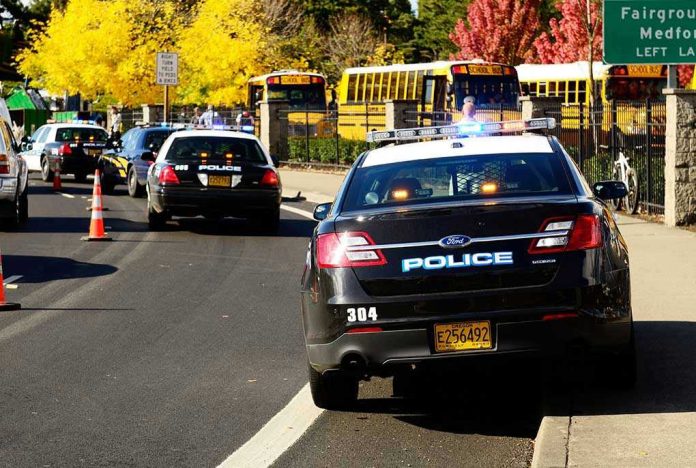
A Connecticut school district’s failure left an autistic child stranded 40 miles from home, fueling renewed outrage over bureaucratic negligence and erosion of parental trust in government-run services.
Story Snapshot
- A 13-year-old autistic boy was mistakenly bused 40 miles away from home by a contracted school transportation provider.
- The incident exposed chronic failures in oversight and communication within New Britain’s public school system.
- Parents and advocates are demanding greater accountability as similar incidents and systemic lapses come to light.
- The debate intensifies over privatized school transportation, government responsibility, and the safety of vulnerable children.
School Bus Mix-Up Puts Special Needs Student in Harm’s Way
On a Friday afternoon in New Britain, Connecticut, a routine school day turned into a nightmare for Somers McCray when her 13-year-old autistic son never arrived home. Instead, the child was mistakenly transported nearly 40 miles away to Danbury, crossing county lines due to a school bus routing error. This alarming event underscored the unique dangers faced by neurodivergent students who depend on structure, routine, and familiar caregivers for their safety and well-being. McCray’s ordeal was compounded by the distress and confusion her son experienced, highlighting how easily a breakdown in basic government services can jeopardize vulnerable children.
School bus drops autistic boy off 40 miles from Conn. home: ‘What is this woman doing with my baby’ https://t.co/u9tVAW48pP pic.twitter.com/erzxxEUE3f
— New York Post (@nypost) September 5, 2025
The New Britain school district had entrusted student transportation to First Student, a large private contractor. However, repeated reports of delays, missed pickups, and drop-off errors had already raised red flags among parents. This latest incident was not isolated; other families reported similar mishaps, suggesting a pattern of systemic failure. The fact that the child’s neurodivergence made him especially susceptible to trauma only added urgency to the calls for reform. Despite federal and state laws mandating safe and appropriate transit for special needs students, lapses in contractor oversight persisted, eroding community confidence in both the district and its chosen provider.
Broader Pattern of Oversight Failures and Parental Frustration
Public outrage grew as local media and parents documented additional cases of special needs children being left on buses or dropped at the wrong locations, sometimes with tragic consequences. In New Britain, the start of the school year, often a period of logistical strain, saw multiple families reporting late arrivals or missed pickups. Nationally, similar stories have surfaced, pointing to underfunding, insufficient training, and inadequate communication as root causes. Parents have limited recourse, relying on advocacy and media pressure to hold districts accountable. Meanwhile, the school district, balancing cost and compliance, faces growing scrutiny over its contract with First Student and its ability to ensure student safety.
The incident prompted immediate action: McCray’s son was reassigned to a different transportation provider, and both the district and First Student issued statements promising corrective measures. Yet, details about these reforms remain vague, and parents like McCray argue that the steps taken are insufficient, especially for children with special needs who require routine and predictability. The episode has triggered broader calls for legislative and regulatory changes to prevent future lapses, as well as demands for more transparent communication between districts, contractors, and families.
Impact on Families, Schools, and the Debate Over Privatized Services
The short-term consequences for McCray’s family included severe emotional distress and disruption of her son’s routine, a critical factor for autistic students. In the long term, the community faces potential contract reviews, heightened oversight, and possibly financial penalties for the transportation provider. Trust between families and the school district has been shaken, with parents across New Britain and similar districts questioning the wisdom of outsourcing vital services to large private companies with limited local accountability. Calls for reform have grown louder, driven by advocacy groups and educators arguing that cost-cutting and bureaucratic inefficiency too often put vulnerable children at risk.
Experts in special education and transportation safety stress the need for drivers to receive specialized training when serving neurodivergent children. They emphasize that even a single failure can have traumatic consequences, and that systemic underfunding and lack of oversight frequently lie at the heart of such incidents. Disability rights organizations remind districts of their legal obligations under federal law to provide safe transportation, while education policy analysts point to the dangers of removing local oversight in favor of unaccountable, profit-driven contractors. With parental trust at a breaking point, this Connecticut case serves as a stark warning about the consequences of bureaucratic neglect and misplaced priorities in America’s public schools.
Sources:
Child With Autism Driven an Hour in Wrong Direction After Bus Route Mix-Up in New Britain: WFSB
School Bus Company Under Fire for Dropping Students Off at Wrong Locations
School bus drops autistic boy off 40 miles from Conn. home: ‘What is this woman doing with my baby’
New Britain School Bus Company Problems: CT Insider
Connecticut Mom Demands Answers After School Bus Mix-Up Sends Autistic Son 40 Miles Away from Home




